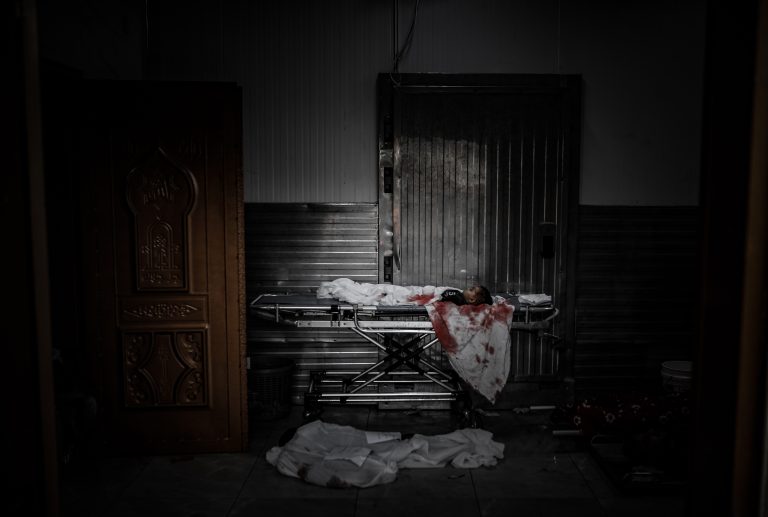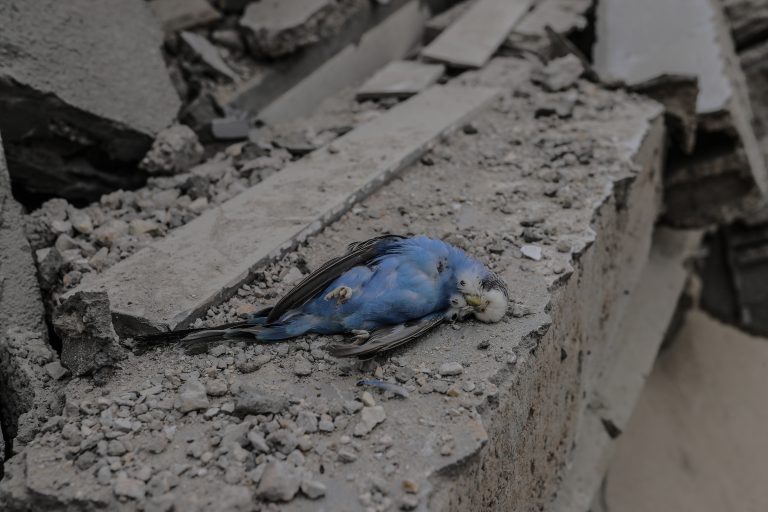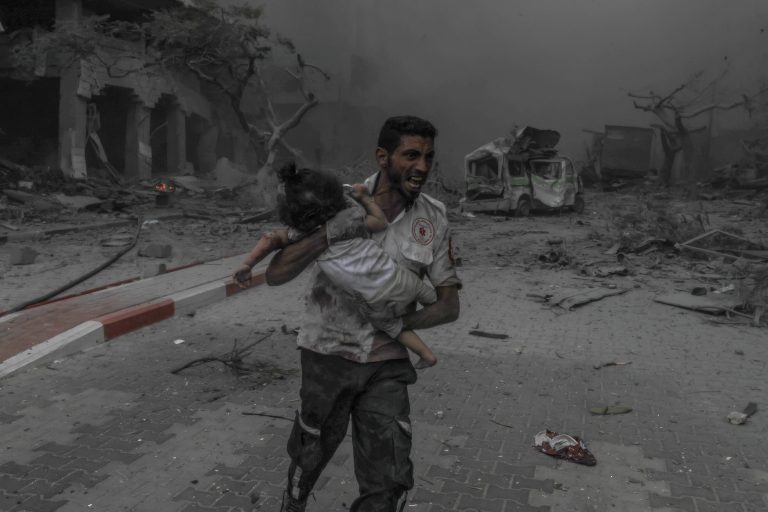In the early months of the war in Gaza, as Israeli airstrikes reduced homes, media offices, and public infrastructure to rubble, thousands of Palestinians were displaced. Journalists, like many others, sought temporary shelter in hospital courtyards—one of the last places with electricity and a fragile internet.
At Nasser Hospital in Khan Younis, a small tent stood beside the morgue, its pale fabric trembling under the hum of drones and the stench of death. It was there that photojournalist Belal Khaled began the project that would become his frontline narrative of survival amid devastation. Outside, the morgue overflowed, filled mostly with the bodies of women and children killed or wounded by the bombs.
Khaled covered 185 consecutive days of the genocide in Gaza before his departure in April. Among his photographs is one of a young girl who lost her hand when her home in northern Gaza was destroyed on 17 November 2023. “After today, I will no longer be able to comb my hair with my own hand,” she said. Her words reveal the intimate tragedies behind the figures: according to Gaza’s Government Media Office, at least 20,000 children—nearly two percent of Gaza’s child population—have been killed since October 2023
These images bear witness to Gaza’s truth, insisting on presence and memory where destruction attempts erasure. Each frame becomes both testimony and remembrance: a father holding his daughter, a woman standing before the ruins of her home, a child watching silently. As Khaled puts it: “If we turn off our cameras, the truth disappears. Each crime must be documented. These are not numbers—these are names, lives, families.”
Belal Khaled is a Palestinian photographer and visual artist based in Doha. His practice centers on documenting conflict, displacement, and resilience, shaped by his upbringing in refugee camps and by the Palestinian struggle. Working across photojournalism and long-term documentary projects, he has covered Israel’s attacks on Gaza since 2010 as well as humanitarian crises in Syria, Azerbaijan, and Turkey.
His work foregrounds lived experience, endurance, and human dignity within conditions of violence and forced migration. Khaled’s photographs have been featured in Time, The Guardian, The Wall Street Journal, and Al Jazeera. He is currently a photographer at Al Jazeera Media Network.


